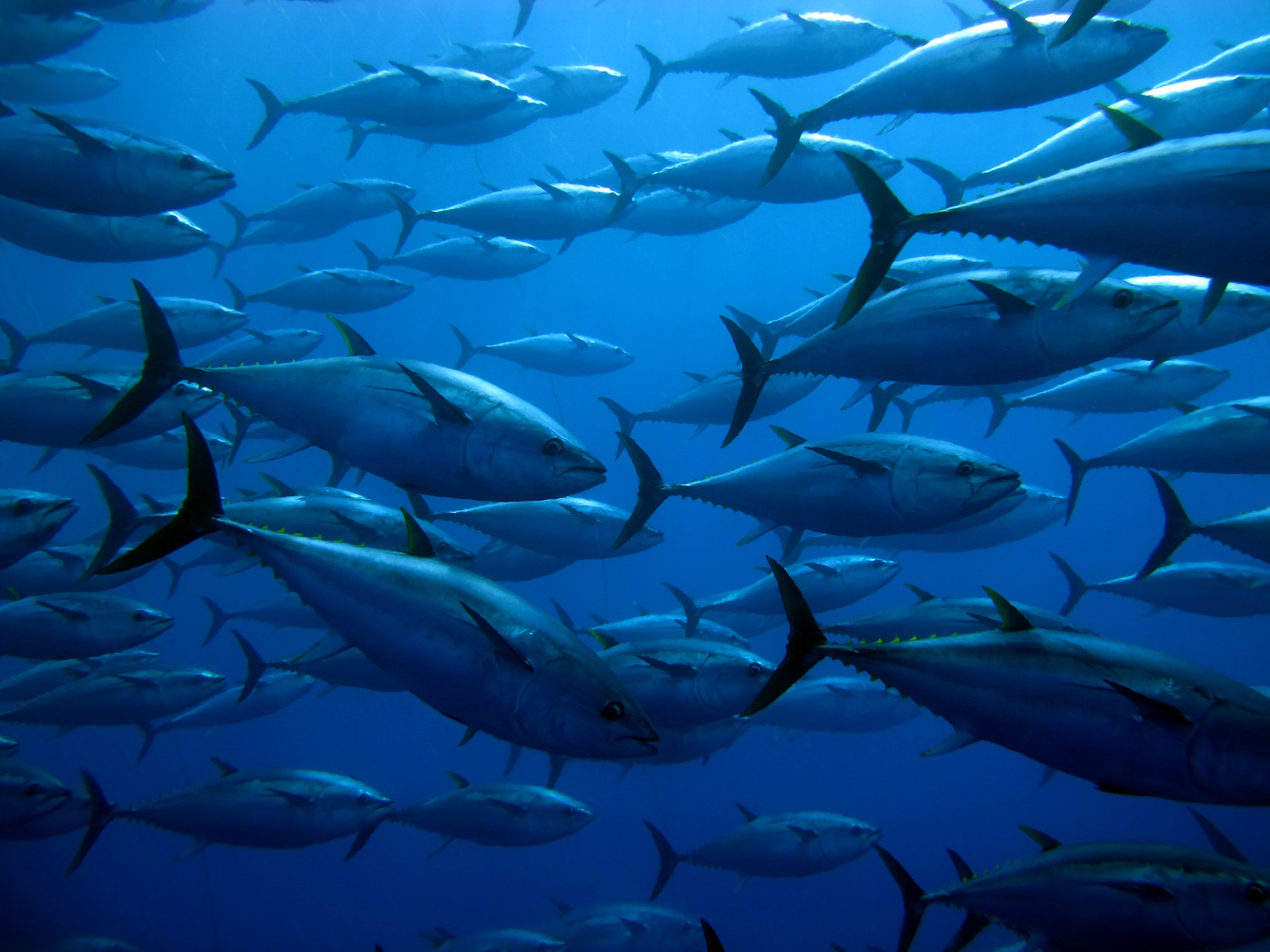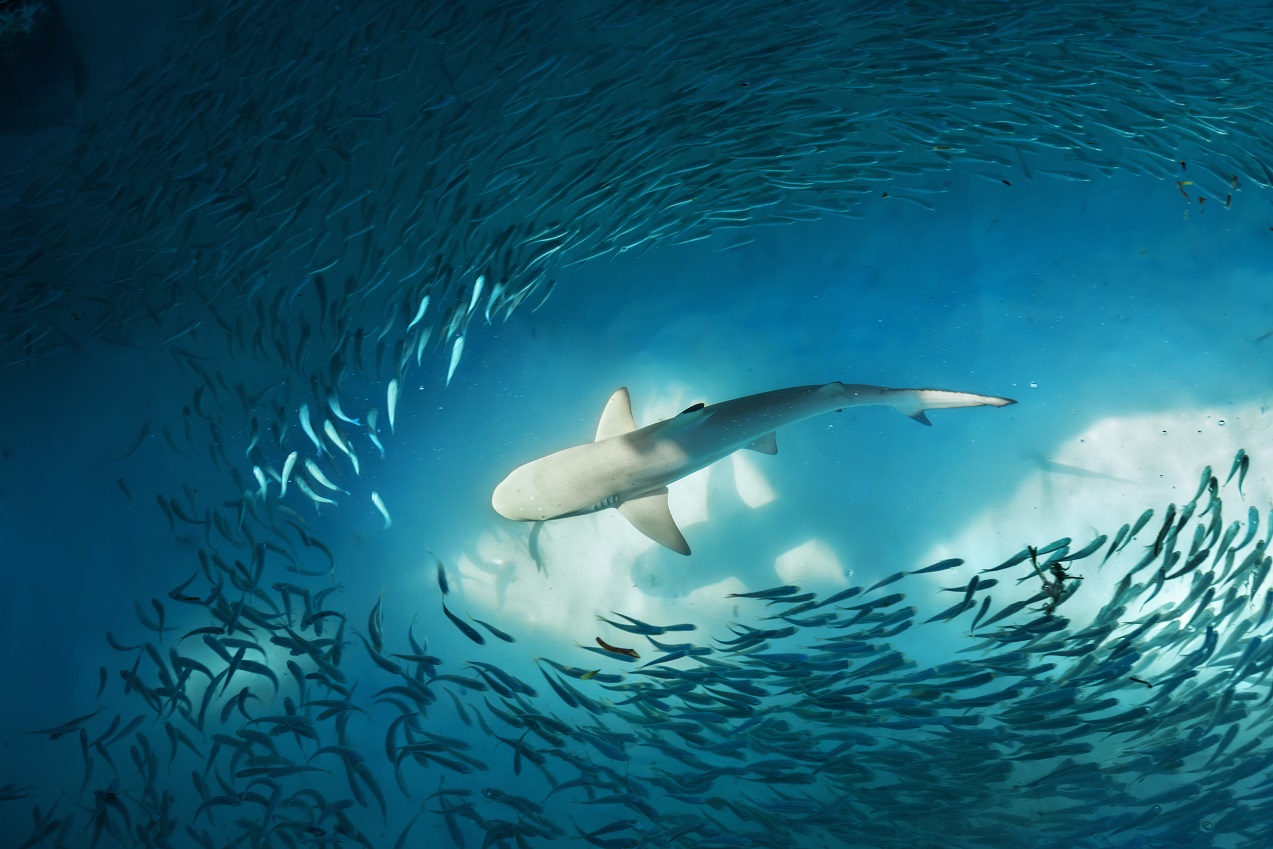
Reducing uncertainty in how marine ecosystems respond to climate change will support more effective adaptation planning, a new ecological modelling study has found.
Climate change caused by humans is a growing threat to marine ecosystems, with its impacts projected to intensify responses in marine animals, including increased mortality, reduced calcification, and changing species distributions, interactions, abundance and biomass. Coupled with stressors like overfishing, the societal benefits from the ocean and marine conservation efforts are also under threat.
Study co-author Dr Camilla Novaglio, from the Institute for Marine and Antarctic Studies (IMAS) and the Centre for Marine Socioecology (CMS), said it is vital to understand the risks of climate change for marine ecosystems – and the benefit of mitigation.
“Projections of climate change impacts on marine ecosystems reveal long-term declines in global marine animal biomass, and show that the impacts on fisheries are unevenly distributed,” Dr Novaglio said.
“Our simulations show that elevated warming, and changes in the availability of nutrients and food, will create a more marked decline in animal biomass in the world’s oceans than previously assessed.”
Lead author, Associate Professor Derek Tittensor, is the Jarislowsky Chair in Marine Ecosystem Forecasting at Dalhousie University. “Our results show worrying trends, but also highlight the importance of better understanding regional changes, where there is considerable uncertainty yet an urgent need to help support adaptation,” he said.
 Study co-author Dr Tyler Eddy, from Memorial University of Newfoundland in Canada, said building confidence in the impacts of climate change for regions is essential.
Study co-author Dr Tyler Eddy, from Memorial University of Newfoundland in Canada, said building confidence in the impacts of climate change for regions is essential.
“It is at these scales that fisheries, and the livelihoods and adaptive capacity of coastal communities, need to be considered,” Dr Eddy said.
An interdisciplinary team of 36 researchers working across 29 research institutions and based in seven countries contributed to this important study as part of theFisheries and Marine Ecosystem Model Intercomparison Project (Fish-MIP).
IMAS and CMS researcher, international program lead and ARC Future Fellow, Professor Julia Blanchard, said Fish-MIP aims to answer questions about the future of fish and fisheries, seafood supply, marine biodiversity and marine ecosystem functioning.
“The project brings together disparate marine ecosystem models, so we can better understand and predict the long-term impacts of climate change on fisheries and marine ecosystems, and provide an evidence base that will help to inform fisheries, climate change, and biodiversity policy,” Prof Blanchard said.
Published in Nature Climate Change, the study represents a stepping stone in planning future pathways towards sustainability, and is a major contribution to the sixth Intergovernmental Panel on Climate Change Assessment Report (IPCC AR6), due for release next year.
“This study is especially relevant to the UN Climate Change Conference (COP 26) being held in Glasgow in early November, where world leaders will discuss their commitments to combat climate change,” Prof Blanchard said.
Images: Shutterstock
Published 22 October 2021